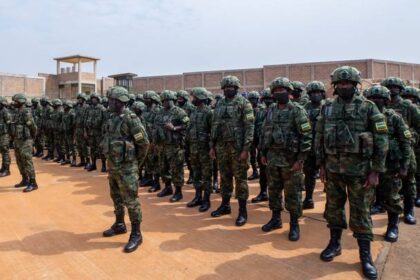The Rwandan forces’ “de facto control and direction over M23 operations also renders Rwanda liable for the actions of M23,” the panel of experts said in the 293-page report to the U.N. Security Council.
Rwanda has denied allegations of supporting rebels. Rather, it noted in February that it has troops and missile systems in eastern Congo to ensure its national security, pointing to a buildup of Congolese forces near the border.
Power struggle
Eastern Congo has struggled with armed violence as more than 120 groups fight for power, land, and valuable mineral resources, while others try to defend their communities. Some armed groups have been accused of mass killings.
Rwanda’s current president, Paul Kagame, a former opposition military commander, is widely credited with stopping the Rwanda genocide, which killed more than 800,000 ethnic Tutsis and moderate Hutus who tried to protect them.
The M23 rebels are largely Congolese ethnic Tutsis, who became prominent when their fighters seized Goma, eastern Congo’s largest city on the border with Rwanda, in November 2012.
Rwandan Ambassador Ernest Rwamucyo told the Security Council Monday that Congo and the international community have failed to ensure the protection of Congolese citizens, especially Congolese Tutsis, who he claimed “are being ethnically cleansed by armed groups.”
The panel of experts said the estimated 3,000 to 4,000 Rwandan troops in Congo were deployed in three regions of eastern North Kivu—Nyiragongo, Rutshuru, and Masisi—when their report was being drafted in April.






